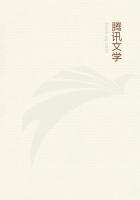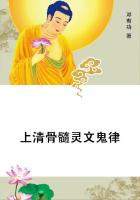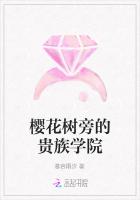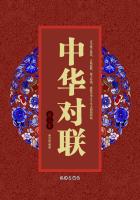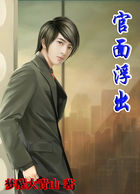As I grew older, my great desire was to be a mechanical engineer, but the fates were against this and, while very young, I commenced the study of medicine under a medical brother-in-law. But, though the Institute of Mechanical Engineers would certainly not own me, Iam not sure that I have not all along been a sort of mechanical engineer in partibus infidelium.[6] I am now occasionally horrified to think how very little I ever knew or cared about medicine as the art of healing. The only part of my professional course which really and deeply interested me was physiology, which is the mechanical engineering of living machines; and, notwithstanding that natural science has been my proper business, I am afraid there is very little of the genuine naturalist in me. I never collected anything, and species work was always a burden to me; what I cared for was the architectural and engineering part of the business, the working out of the wonderful unity of plan in the thousands and thousands of diverse living constructions, and the modifications of similar apparatuses to serve diverse ends. The extraordinary attraction I felt towards the study of the intricacies of living structure nearly proved fatal to me at the outset. I was a mere boy--I think between thirteen and fourteen years of age--when I was taken by some older student friends of mine to the first post-mortem examination I ever attended. All my life I have been most unfortunately sensitive to the disagreeables which attend anatomical pursuits, but on this occasion my curiosity overpowered all other feelings, and I spent two or three hours in gratifying it. I did not cut myself, and none of the ordinary symptoms of dissection-poison supervened, but poisoned I was somehow, and Iremember sinking into a strange state of apathy. By way of a last chance, I was sent to the care of some good, kind people, friends of my father's, who lived in a farmhouse in the heart of Warwickshire. I remember staggering from my bed to the window on the bright spring morning after my arrival, and throwing open the casement. Life seemed to come back on the wings of the breeze, and to this day the faint odor of wood-smoke, like that which floated across the farm-yard in the early morning, is as good to me as the "sweet south upon a bed of violets."[7] I soon recovered, but for years I suffered from occasional paroxysms of internal pain, and from that time my constant friend, hypochondriacal dyspepsia, commenced his half century of co-tenancy of my fleshly tabernacle.
Looking back on my "Lehrjahre,"[8] I am sorry to say that I do not think that any account of my doings as a student would tend to edification. In fact, I should distinctly warn ingenuous youth to avoid imitating my example. I worked extremely hard when it pleased me, and when it did not--which was a very frequent case--Iwas extremely idle (unless making caricatures of one's pastors and masters is to be called a branch of industry), or else wasted my energies in wrong directions. I read everything I could lay hands upon, including novels, and took up all sorts of pursuits to drop them again quite as speedily. No doubt it was very largely my own fault, but the only instruction from which I ever obtained the proper effect of education was that which I received from Mr.
Wharton Jones, who was the lecturer on physiology at the Charing Cross School of Medicine. The extent and precision of his knowledge impressed me greatly, and the severe exactness of his method of lecturing was quite to my taste. I do not know that Ihave ever felt so much respect for anybody as a teacher before or since. I worked hard to obtain his approbation, and he was extremely kind and helpful to the youngster who, I am afraid, took up more of his time than he had any right to do. It was he who suggested the publication of my first scientific paper--a very little one--in the Medical Gazette of 1845, and most kindly corrected the literary faults which abounded in it, short as it was; for at that time, and for many years afterwards, I detested the trouble of writing, and would take no pains over it.
It was in the early spring of 1846, that, having finished my obligatory medical studies and passed the first M. D. examination at the London University,--though I was still too young to qualify at the College of Surgeons,--I was talking to a fellow-student (the present eminent physician, Sir Joseph Fayrer), and wondering what Ishould do to meet the imperative necessity for earning my own bread, when my friend suggested that I should write to Sir William Burnett, at that time Director-General for the Medical Service of the Navy, for an appointment. I thought this rather a strong thing to do, as Sir William was personally unknown to me, but my cheery friend would not listen to my scruples, so I went to my lodgings and wrote the best letter I could devise. A few days afterwards Ireceived the usual official circular acknowledgment, but at the bottom there was written an instruction to call at Somerset House on such a day. I thought that looked like business, so at the appointed time I called and sent in my card, while I waited in Sir William's ante-room. He was a tall, shrewd-looking old gentleman, with a broad Scotch accent--and I think I see him now as he entered with my card in his hand. The first thing he did was to return it, with the frugal reminder that I should probably find it useful on some other occasion. The second was to ask whether I was an Irishman. I suppose the air of modesty about my appeal must have struck him. I satisfied the Director-General that I was English to the backbone, and he made some inquiries as to my student career, finally desiring me to hold myself ready for examination. Having passed this, I was in Her Majesty's Service, and entered on the books of Nelson's [9] old ship, the Victory, for duty at Haslar Hospital, about a couple of months after I made my application.

